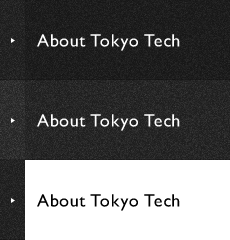The School Education Act requires universities to conduct self-assessment and evaluation for the purpose of vitalizing and improving the level of their education and research activities and fulfilling their social responsibilities as higher learning institutions. The self-assessment and evaluation process is broadly divided into the following three stages.
In line with its established 6-year mid-term objectives period for self-assessment and evaluation of the university as a whole and of all Schools, Tokyo Tech has conducted self-assessment and evaluation of the following administrative offices and departments, Tokyo Tech High School of Science and Technology, and Schools and Institutes. The results of the 3rd mid-term objectives period are compiled in the “self-assessment and evaluation report of the 3rd mid-term objectives (FY2016-FY2021) (Japanese).
In FY2004, Tokyo Tech was incorporated as a national university corporation, and a 6-year mid-term objectives period for self-assessment and evaluation of the university as a whole and of all schools and graduate schools was established. The results of 2nd mid-term objectives period are compiled in the publication Tokyo Tech Now 2016.
History of Law Revisions Pertaining to the Self-Assessment System
Standards for the Establishment of Universities were revised (1991).
The revised standards provided that universities should make efforts to conduct self-assessment and evaluation.
Standards for the Establishment of Universities were further revised (1999).
The revised standards required universities to conduct self-assessment and evaluation and disclose the results to the public, and to make efforts to have the results inspected by an external entity.
The School Education Act was revised (2002).
Provisions pertaining to conducting self-assessment and evaluation and disclosure of results were specified by law (the provisions came into effect on April 1, 2004).
The provision that required results to be inspected by an external entity was abolished with the introduction of the evaluation and accreditation system.
Provisions of Existing Laws and Regulations
Article 109 of the School Education Act
In order to contribute to enhancing the levels of education and research, a university shall conduct self-assessment and self-evaluation with regard to the details of its education and research activities, organization and operation, and facilities and equipment and publicize the results thereof, as provided for by the Minister of Education, Culture, Sports, Science and Technology.
Article 166 of the Ordinance for Enforcement of the School Education Act
In conducting the assessment and evaluation provided in paragraph (1), Article 109 of the School Education Act, a university shall set appropriate criteria and develop appropriate systems in conformance with the intent of the provision.
Reference: University High Schools
The 2007 revision of the School Education Act introduced a school evaluation system for elementary schools, junior high schools, and high schools.
(Ministry of Education, Culture, Sports, Science and Technology "School Evaluations" (Japanese))
. Any information published on this site will be valid in relation to Science Tokyo.


